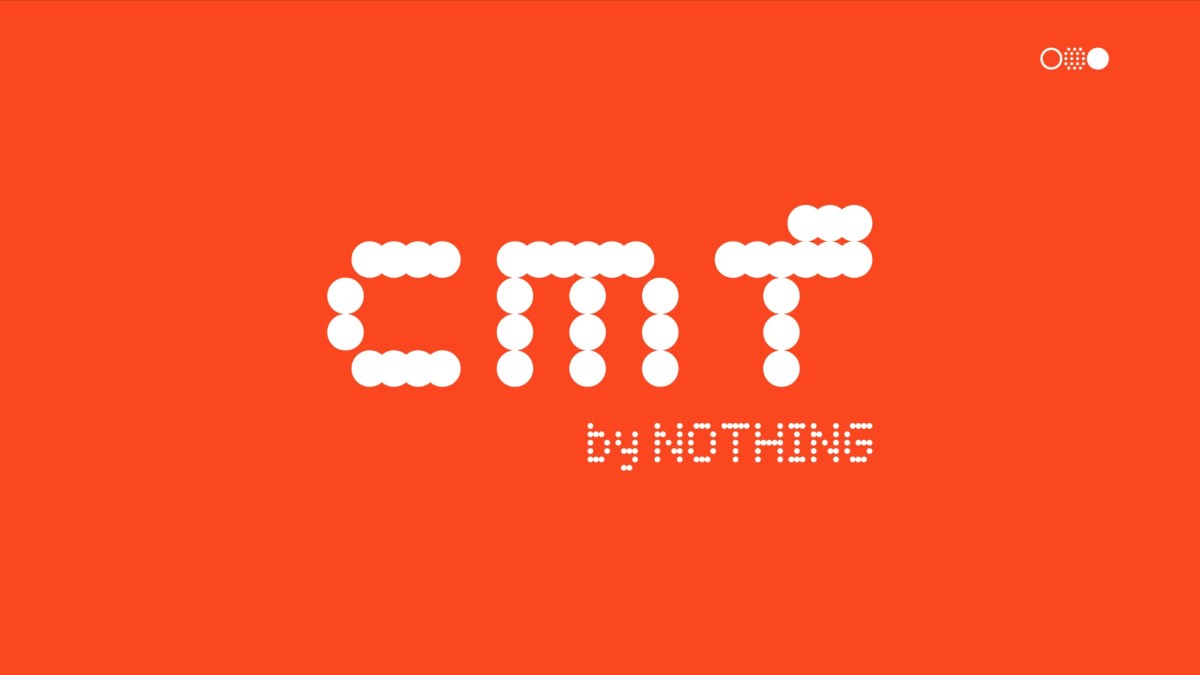While the Arab League and Organisation of Islamic Cooperation voiced support for South Africa’s case, it’s notable that it was South Africa that filed the case in the first place. Additionally, while many countries make a show of support for Palestinians, it’s largely business as usual with Israel.
A member of South Africa’s advisory team before the International Court of Justice: “We expect a decision on the lawsuit against Israel to be made within a week, as no country has officially joined South Africa’s lawsuit despite the support of several countries in the media”
— S p r i n t e r (@Sprinter99800) January 20, 2024
Maybe no one talks louder than Turkish President Recep Tayyip Erdoğan, but oil still flows from Azerbaijan to Israel via Turkiye, and the Incirlik air base in Turkiye is still used by the US to deliver weapons to Israel. Persian Gulf states also refuse to use oil as leverage on Israel.
While the West is in complete support of Israel, elsewhere few countries have withdrawn diplomats or suspended economic ties with Israel.
How big of a role do Israeli sales of weapons and surveillance technology play in those decisions? Antony Loewenstein in his book “The Palestine Laboratory” makes a compelling case that it plays a big part. I wrote a review of a month ago, largely focusing on the spread of surveillance and population control technology pioneered by Israel, which is used in efforts to plunder assets or people – both abroad and domestically.
The increasing worldwide use of population control technology that Israel uses (and refines) on Palestinians is a warning sign for the future, but also helps explain why governments are still hesitant to oppose Israel. There are no doubt other factors at play, such as pressure from the US and other forces of coercion, and while Israel’s tech may have lost some of its luster on Oct. 7, as the Israel Defense Force’s supposedly state-of-the-art systems were unable to prevent Hamas’ attack, it’s still in demand because of what Loewenstein describes here about Cellebrite, the Israeli digital intelligence behemoth whose products include the Universal Forensic Extraction Device hacking tool:
A former Cellebrite employee, previously a member of the defense establishment, wrote anonymously in Haaretz that “I can say from personal experience that the company does nothing to prevent the abuse of its products by customers.” The reason repressive states want Israeli tech, whether from Cellebrite or NSO, is simple: China and other states make “inferior alternatives.”
The Case of Columbia
Israel’s spat with Bogota helps highlight why governments are reluctant to call Israel out for its crimes.
Israel sells to just about everyone who wants to buy. It sold to Chile during Pinochet despite the US-backed dictator torturing and murdering Jews. It sells to China, Russia, the US, the EU. It sells to Gulf monarchies. Israel has not ratified the Arms Trade Treaty, which prohibits the sale of weapons at risk of being used in genocide and crimes against humanity. And so naturally, it’s played an integral role arming genocidal governments over the years, including in Guatemala, Indonesia, Equatorial Guinea, Rwanda, and Sri Lanka.
But Israel will suspend sales if a country goes too far in its criticism of Israeli actions. In October, this happened with Columbia after its president Gustavo Petro made comments, such as “terrorism is killing innocent children in Palestine” and accused Israel of turning Gaza into a “concentration camp.”
Israel called Colombia’s ambassador to a meeting in which she was informed that defense cooperation between the countries would be suspended.
The Colombian Air Force’s primary fighter jet and only high-performance combat aircraft is made by IAI. According to Defense News, “the Kfir jets are also armed with weapons acquired from Israel, including the Derby BVR medium-range air-to-air missiles from Rafael Advanced Defense Systems and Griffin laser-guided-bombs from IAI. And the Kfirs use Python III and Python IV all-aspect, heat-seeking, close-range air-to-air missiles, made by Rafael.” Columbia also got its infantry rifles and primary anti-tank missiles from Israeli companies.
The relationship between Israel and Columbia is much deeper than just that, however, as described by Loewenstein in “The Palestine Laboratory.” Infamous Israeli-manufactured Galil rifles ended up with Columbian drug lords in the late 1980s after being used in the Guatemalan genocide. More:
American and Columbian investigators discovered that the weapons were part of a murky deal between Israeli mercenaries and and Medellin cocaine cartel head Jose Gonzalo Rodriguez Gacha when he wanted to take over the country and build a neofascist state. Wanting Israelis to help him with this project made sense, considering the sort of work elements of the Israeli military had done in Latin America in the 1970s and 1980s.…
The former drug trafficker Carlos Castano, who ran a far-right paramilitary force, explains in his ghost-written autobiography, “I learned an infinite amount of things in Israel [in the 1980s], and to that country I owe part of my essence, my human and military achievments. I copied the concept of paramilitary forces from the Israelis.”
Decades later, Israeli company Global Comprehensive Security Transformation (Global CST), founded by a former head of the Operations Directorate of the IDF, played a major role assisting the Columbian military in its war against the FARC rebel group.
In a promotional video for Global CST in 2011, made when he was president of Columbia, Santos praised the company as “people with a lot of experience.” Santos told an Israeli TV program that he was excited about the Israeli trainers used by the firm: “We’ve [Columbians] even been accused of being the Israelites of Latin America, which personally makes me feel really proud.” The show mentioned Columbia’s 2008 raid into Ecuador and killing of FARC’s second-in-command Paul Reyes. The narrator praised the mission: “All of a sudden, the methods that proved efficient in Nablus and Hebron begin speaking Spanish.”
Columbia for the time being will have a more difficult time gaining access to such services from Israeli companies. Other countries may be wary of losing similar assistance.
From the Israeli side, there are still plenty of customers, and the government is streamlining the sale process. New government regulations introduced last year will allow Israel to sell more weapons to more countries without the requirement to obtain a license – not that there was much danger of a sale being blocked anyways. [1]
Weapons Sales
Israeli weapons are still flying off the shelves amid the genocide in Gaza, as it appears Israel’s failures on the battlefield are not dissuading buyers. Israel is, by far, the world’s largest exporter of military drones: in 2017, it was estimated that it was behind nearly two-thirds of all UAV exports over the previous three decades.
According to CTech, Israeli ‘kamikaze’ drones are in high demand amid the war on Gaza war, with Israel Aerospace Industries (IAI) completing at least a few deals since Oct. 7. IAI sold to at least four NATO countries last year as well, including its Rotem loitering munitions. A big selling point is that they have been “proven in different combat situations.”
And Israel has been testing out all types of new weapons in Gaza, including loitering munitions and the fire monitoring system SMASH, which uses artificial intelligence-based image processing to lock onto the target, tracking movement to synchronize the shot. This is reportedly the first time SMASH is being used in live situations, and according to Ynet, “the proven success in wartime has increased the demand for the system worldwide.”
Many more weapons are being “showcased” in Gaza. From the Foundation for Defense of Democracies:
The Smash technology is not the only one Israel has highlighted in the recent conflict. The Iron Sting precision mortar system, made by Elbit Systems, has also been used for the first time in this conflict. On Friday December 15, the IDF said it struck a launch post in Lebanon using the Iron Sting. That same day, the IDF also used Iron Sting to hit a weapon storage in Khan Yunis. In addition, the IDF said that the 414th IDF battalion used a Maoz drone for the first time to strike terrorist cells in Khan Yunis. This was apparently the first time it was used by this unit, because the system has been used several times recently and was first used in Jenin in July. The Maoz is also known as the Spike FireFly, and it is a loitering munition that slams into a target but can hover overhead and wait for a target to become available. It is made by Rafael Advanced Defense Systems. Taken together, these three systems — the Smash sights, the Iron Sting and the Maoz — are all examples of precision munitions that can be used against relatively small targets.
Rafael has an order backlog which currently stands at $10.1 billion.
In our age of polycrisis, Israeli military tech firms are cashing in, meeting the needs of the times, which is highlighted by a passage in Loewenstein’s book that stood out to me:
Neither anti-Semitism nor extremism have been an impediment to collaboration with states that plunder assets or people.
About that plunder:
The world’s richest 1% own 43% of global financial assets, and the wealth of the top five billionaires has doubled since 2020, while 60% of humanity – nearly 5 billion people – collectively got poorer, according to a report by Oxfam.https://t.co/YHHcgz7yXo
— Ben Norton (@BenjaminNorton) January 18, 2024
That plunder is a main driver behind the crises coming in waves, and the backlash it creates leads to even more of a perceived need of weapons and surveillance tech, which Israel is happy to provide, as evidenced by the 130 countries that have bought weapons, drones and cyberspying technology from Israel, the world’s 10th-largest weapons exporter. And no plunderer wants to lose access to useful Israeli tools at a time like this.
So Ursula von der Leyen stated in Davos that she wants to use the DSA legislation to censor social media under the pretext of “hate speech”
One question, who exactly elected this lady?
🤔 pic.twitter.com/xYyoeUJWx7— Richard (@ricwe123) January 16, 2024
Despite (or because of) supply chain breakdowns and dealing with financial crises, pandemics, etc., sales of the top 100 arms companies continue to grow. US weapons sales to foreign governments jumped 49 percent in 2022, and Israel keeps setting weapons sales records, including $12.5 billion in 2022. This year is expected to be even better, and investors are pouring cash into military tech start-ups in Israel, likely expecting a nice pay off from the weapons getting live use in Gaza.
We can look back to the 2014 Gaza War for a glimpse into how this works, as Al Jazeera describes:
Elbit, the maker of the Iron Sting, provides up to 85 percent of the land-based equipment procured by the Israeli military and about 85 percent of its drones, according to Database of Israeli Military and Security Export (DIMSE). But after the 2014 Gaza war, its export market expanded significantly, too. Elbit promotes its Hermes UAVs as “combat-proven” and the “primary platform of the IDF in counter-terror operations”.
The Hermes 450 and Hermes 900 were both used extensively in “Operation Protective Edge”, Israel’s 2014 war, during which 37 percent of fatalities were attributed to drone attacks, according to an estimate by the Gaza-based Al Mezan Center for Human Rights.
Elbit subsequently secured contracts for the new Hermes 900 drone with more than 20 countries worldwide including the Philippines, which purchased 13, as well as India, Azerbaijan, Canada, Brazil, Chile, Colombia, Iceland, the European Union, Mexico, Switzerland and Thailand. In March 2023, Elbit Systems announced their 120th order for the Hermes 900.
Israel is expecting the same to happen whenever it ends its war on Gaza – if it gets to decide when the widening conflict ends and the more than 300,000 Israelis drafted to reserve duty go back to work. The new chairman of the Israel Securities Authority, Seffy Zinger, recently told Reuters, “We believe there is an opportunity in Israel that after the war the economy will grow. The same thing happened in past wars or military campaigns in Israel the last two decades. And the high tech sector is very strong.”
Surveillance Setback?
While its overreliance on technology was in large part responsible for Israel’s failure to prevent the Oct. 7 attack, the country’s industry faces another pressing challenge.
At the recent major defense expo in the heart of France – the country whose defense minister says international genocide law doesn’t apply to Israel – there were no Israeli spyware firms to be found.
They are facing pushback from worldwide clients, but it has nothing to do with their treatment of “human animals” in Gaza and the West Bank.
No, the reason was largely because US and EU firms want a bigger share of the market for offensive spyware and have been critical of Israeli companies in the same field, such as NSO Group and its Pegasus spyware. It can hack into devices remotely, giving its operators full access to a phone and has been used on journalists and activists around the world.
While the US blacklists Israeli and Israeli-owned spyware firms (including NSO), it continues to develop and deploy even more powerful surveillance tools against Americans and the rest of the world.
Researchers have documented over two thousand U.S. law enforcement agencies that have procured digital forensics technology, which require physical possession of a target’s device in order to install, but the level of intrusiveness can be even greater than that of remote spyware technology. Loewenstein writes in “The Palestine Laboratory” that “the likely reason behind Biden’s moves against NSO was US concerns that an Israeli company was encroaching on American technological supremacy.”
There are also European firms who were out in force at the Milipol Paris showcasing the same abilities that the West criticized NSO for. From Haaretz:
Though Israeli offensive cyber firms did not attend, their European competitors did: RCS, producer of the Hermit spyware that is considered a competitor of NSO’s Pegasus; Memento Labs, formerly known as Hacking Team; and IPS-Intelligence, all Italian firms, were present. Alongside these known spyware vendors, previously unreported ones also pitched on the expo floor: Invasys, a Czech firm being revealed here for the first time, offered an “offensive cyber” program Kelpie with the ability to hack iPhones and Android and thus access fully encrypted communications apps.
Despite the competition putting the squeeze on Israeli spyware companies, there were still more than a dozen firms in Paris that were part of an official Israeli delegation organized by Israel Export Institute. One was Toka Cyber, which refused to provide any details of their activities to the media. But when Haaretz reporters reminded the companies’ representatives that the publication reported last year that ‘the firm sells tech that hacks into security cameras and even alters their video feeds for intelligence and operational needs, Toka’s representatives responded: “allegedly.”’
Notes
[1] According to “The Palestine Laboratory,” the Israeli government approved every defense deal brought to it since 2007, according to details uncovered in 2022 by Israeli human rights lawyer Eitay Mack.







































